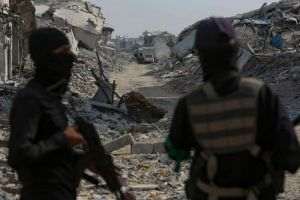Brazil, host of the upcoming UN climate conference (COP30), is facing a serious ecological crisis: forest and vegetation fires in 2024 have devastated more than 30 million hectares, equivalent to an area larger than Italy. According to a study published by the monitoring network MapBiomas, the affected area is 62% larger than the average recorded between 1985 and 2023, which marks a new alarming record for the largest country in Latin America.
• The Amazon, the epicenter of the ecological disaster
The most affected territories are those in the Brazilian Amazon region, where 15.6 million hectares have burned - more than twice the average of the last four decades, with an increase of 117%. The rainforest, considered the "green lungs of the planet,” is suffering damage that may be irreversible. "When the forest burns, it loses its moisture and its vegetation cover, and this changes its entire microclimate, making it more vulnerable to new fires,” explained Felipe Martenexen, research coordinator at MapBiomas, in a press conference.
• Human factor, the main culprit
Although Brazil faced a severe drought last year, researchers warn that the vast majority of fires are caused by human activities, often illegal - to expand agriculture and pastures. This reality contradicts the narrative that fire is an inevitable natural phenomenon in this area. Since 1985, almost a quarter of Brazil's territory (24%) has been affected by fires at least once, according to data from MapBiomas, which monitors environmental changes using satellite images.
• A wake-up call before COP30
This situation comes at a critical moment, as Brazil prepares to be in the international spotlight: the city of Belem, located in the heart of the Amazon, will host the UN Climate Change Conference (COP30) in November 2025. The fact that the host country is facing such ecological losses just before the event puts immense pressure on Brazilian authorities to demonstrate concrete and effective measures to combat deforestation and fires.
The MapBiomas study renews the essential question: can Brazil protect the Amazon before the damage becomes irreversible? And, more broadly, can the international community act quickly and with solidarity enough to protect the planet's most important tropical ecosystem? The answers may begin to take shape at COP30, but the facts on the ground indicate the urgency of a radical change in approach to managing natural resources. Until then, the Amazon continues to burn.













































